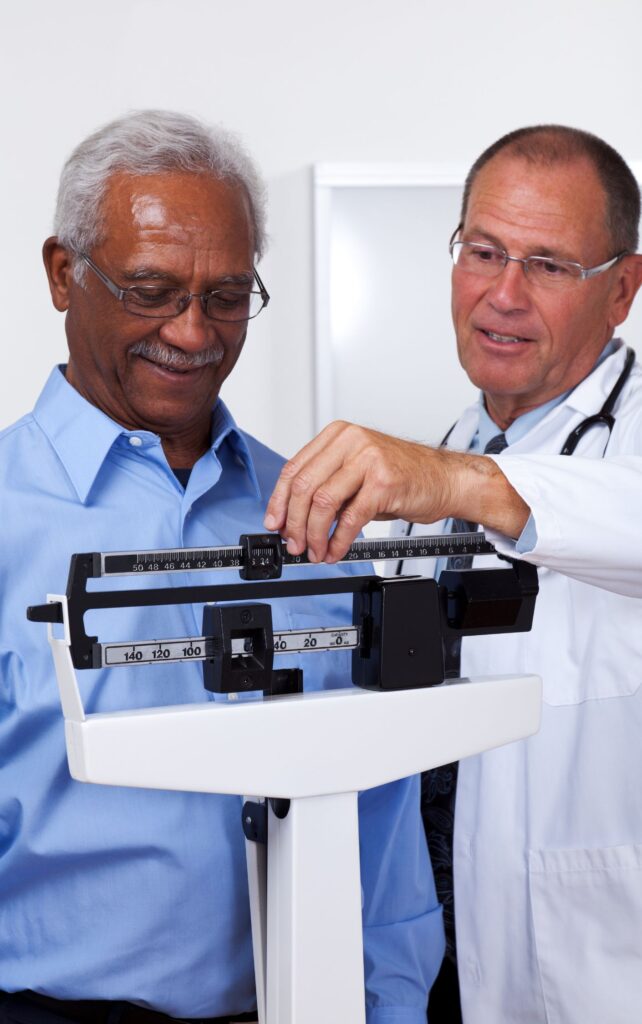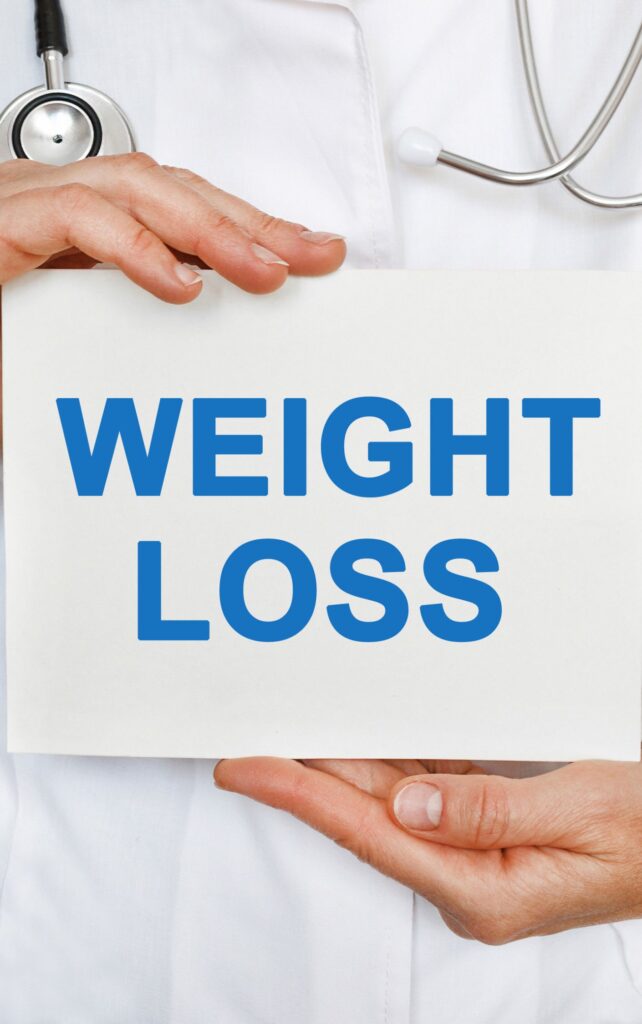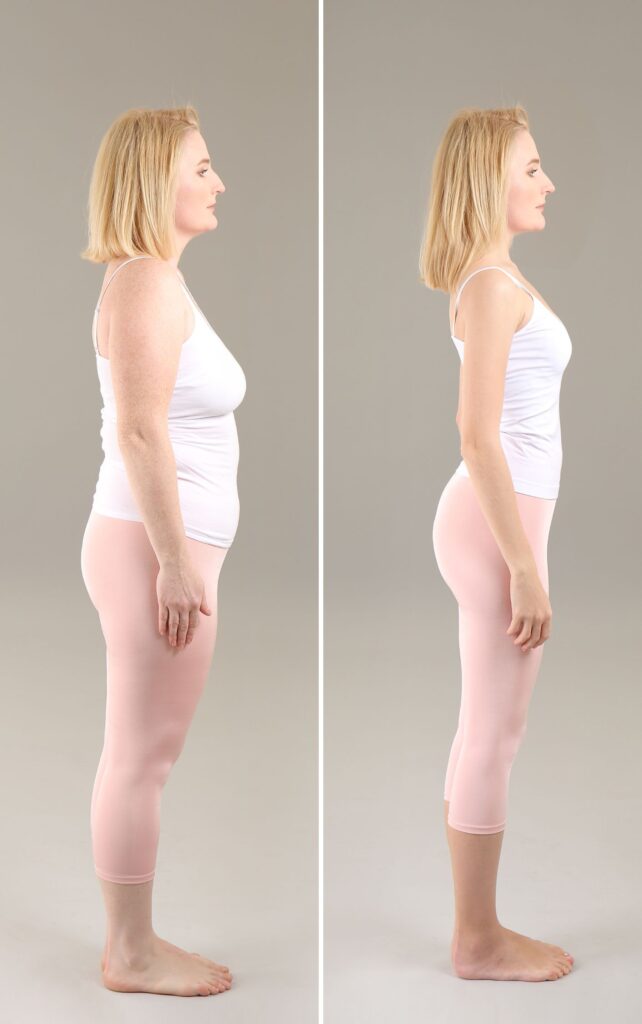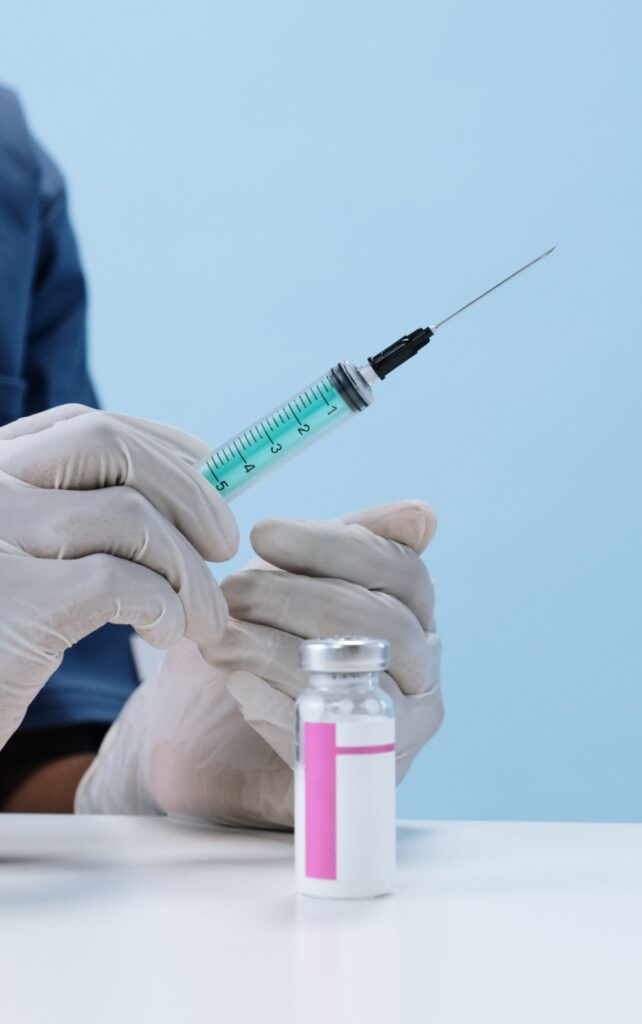FAQ’S About Customized Weight Loss Treatment

Are you looking into your options for customized weight loss treatment? Physicians tailor customized weight loss treatment to the needs of their patients. Treatment is often a combination of measures that tackle different aspects of weight loss. Read the answers to the following common questions on weight loss programs to learn what to expect from treatment. Common questions about customized weight loss treatment Overweight and obesity are challenging conditions to overcome, and it is not because of a lack of will. It takes knowledge to craft a customized weight loss treatment program that is effective. There are several treatments that doctors can use for weight loss treatment plans, such as diet and exercise plans that patients follow under physician supervision. These approaches require lifestyle changes and continuous monitoring by a physician. The time that it takes to achieve results depends on factors that vary from one patient to another. The most important factor is a patient’s adherence to the doctor’s program. What does a customized weight loss program look like? It starts as a consultation with a doctor who specializes in weight loss treatment. The patient shares their needs and wants with the doctor, who listens and asks follow-up questions. Next, the physician evaluates the patient and collects all the information that they need to craft a custom treatment plan for them. The doctor works with the patient to create a weight loss program that takes the following into account: ▪ Medical history ▪ The person’s previous weight loss attempts ▪ Lifestyle habits and daily routine ▪ Any psychological needs or issues that the patient may have A doctor often works with specialists like dietitians, trainers, and behavioral coaches to develop an effective program. They become the point of contact that oversees all aspects of the patient’s progress. How long does it take for treatment to work? Changes can become evident in a matter of months, especially with programs that include bariatric treatment. Progress will depend on an individual’s health, activity level, and adherence to the program. How do physicians choose the treatments that go into a weight loss program? It comes down to the information that the doctor collects during patient evaluation. For example, patients with a BMI of more than 40 are good candidates for surgical or non-surgical bariatric treatment. A patient with a BMI between 35 and 40 is also a potential candidate for non-surgical bariatric treatment. Physicians choose the least-invasive treatment options possible, so patients with a BMI lower than 35 are good candidates for diet and exercise programs. Physicians also consider the person’s health and previous weight-loss efforts when crafting their weight loss treatment plan. Do I need to be significantly overweight to go on a medical weight loss program? Medical weight loss programs are for anyone looking to lose weight, not only those who are very overweight. Regardless of how big or small their weight loss goals are, the same amount of effort goes into tailoring the treatment to fit the patient’s fitness level, overall health, personal satisfaction, and well-being. Medical weight loss programs include crafting diet and exercise plans that are easy for patients to incorporate into their lifestyles. That is what leads to lasting weight loss. Are medical weight loss programs safe for people with chronic conditions like diabetes? Yes, people with chronic conditions like diabetes are eligible for medical weight loss programs. Treatment plans are customized for each patient to prevent their weight loss from having an adverse effect on their condition. In most cases, losing weight helps improve the symptoms of chronic conditions like hormone dysfunctions, hypertension, heart disease, sleep apnea, high cholesterol, and diabetes. Medical weight loss treatments can also benefit people with chronic mental health issues like depression and anxiety. What does it mean to be obese? The term obesity refers to having excess body weight. It is usually the result of not getting enough exercise or overeating. Obesity is currently classified as a chronic medical disease, and it comes with serious health implications that are caused by various factors. Obesity is the second leading cause of preventable deaths, after smoking tobacco products. Obesity is also one of the major risk factors for health conditions like diabetes, cardiovascular disease, and hypertension. About one out of every three adults in the U.S. is obese. Start a weight loss journey that delivers Book a consultation with our clinic, and find out how customized weight loss treatment can help you start a new chapter in your life. Get more information about Unicorn Medical Weight Loss & Medi Spa in Las Vegas at Unicornmedispa.com Check out what others are saying about our services on Yelp and Google
Learning What Medical Weight Loss Is and Is Not

It is easy to dismiss the term “medical weight loss” as the latest fitness fad in a long line of fitness fads. Unlike many fitness journeys and diet crazes, medical weight loss is not some magical solution that works in the blink of an eye. This particular type of weight loss is based on two realistic principles. The first principle is that successful, permanent weight loss is a long-term goal that is split up into smaller, daily, doable goals. The second principle is that permanent weight lossis the effect of a lifestyle choice that incorporates healthy eating and exercise into a person’s consciousness and daily routine. Why is this particular type of weight loss described as “medical”? A large percentage of the population now lives with excess weight or obesity. These conditions open the door for lifestyle diseases like cardiovascular disease, hypertension, and type 2 diabetes. It turns out that medical professionals are on the front lines of the war against these kinds of diseases. The problem is that by treating these diseases, medical professionals can only be reactive. They would prefer it if patients did not develop lifestyle diseases in the first place. Some doctors and nurses decide to be proactive instead. They start programs that aim to tackle excess weight before it causes secondary complications. Medical weight loss programs also help people with lifestyle diseases to lose weight and become healthy. In a nutshell, medical weight loss describes programs that are overseen and executed by medical professionals. They employ the knowledge, experience, and research done by doctors, dietitians, nurses, and fitness trainers to create solutions that work in the long term. With the doctor’s help, a person seeking to lose weight will get a realistic diet and exercise regimen tailored to their own needs. Doctors can help patients discover and sustain the motivation to lose weight. What to expect from medical weight loss programs A person that goes through a medical weight loss program will do so in a clinical setting. In this setting, a doctor will perform an exhaustive evaluation of the patient. The doctor will collect information like: 1. The ratio of body fat to muscle (body composition) 2. The details of a person’s metabolism 3. A person’s daily routine and typical diet 4. Whether or not there is a family history of obesity 5. If the person has a physiological or psychological condition that is at the root of their weight gain 6. The history of the person’s diet and exercise efforts Based on the information collected, the medical staff will create a customized weight loss program that takes into account the patient’s health and daily routines. The nurse or doctor will keep tabs on the diet and exercise aspects of the weight loss program. The patient will need to check in regularly so that the doctor can perform periodic evaluations. If need be, the medical team will make adjustments to the patient’s weight loss plan. In a nutshell, the patient will participate and benefit from a medically supervised weight loss program. Typically, the program takes many, many months. Weight loss is often permanent, as medical weight loss programs boast high success rates. What a medical weight loss program is not As stated before, medical weight loss is not some magical solution. This is not the kind of program that will get a patient into that bridesmaid’s dress in two weeks. The people that need a bikini body yesterday should try something else. As should the person that wants to look good for next month’s reunion. Procedures and treatments that are definitely not part of a medical weight loss program include diet pills, liposuction, body contouring, and bariatric surgery. Medical weight loss aims to deal with the root cause of weight gain and obesity. The approaches listed above deal with the symptoms and effects instead of the root cause. In and of themselves, these do not cultivate or instill a healthy attitude toward nutrition and exercise. Lose weight with an effective approach that is backed by medical findings Weight loss might be intimidating at first. If you are looking for an effective weight reduction program, it might be tough to know which one to choose. A doctor’s education and expertise may help you rest easy knowing that you are getting personalized treatment and a weight reduction strategy suited to your specific requirements. When you work toward a healthy body and prioritize long-term lifestyle changes, weight loss follows. You might not even notice it because you will need to focus on regaining your health instead of putting pressure on yourself. The medical staff can help with your health goals. Call or visit the office to learn how medical weight loss can turn your life around for good. Get more information about Unicorn Medical Weight Loss & Medi Spa in Las Vegas at Unicornmedispa.com Check out what others are saying about our services on Yelp and Google
Popular Non-surgical Weight Loss Treatments

Are you looking into your non-surgical weight loss options? These treatments can help patients achieve weight loss more efficiently. Thanks to medical advances, these procedures are brief and minimally invasive. Doctors can perform the procedures on an outpatient basis, with a few follow-up visits to track patient progress. Keep reading to learn more about the efficacy and benefits of non-surgical weight loss treatments. The basics of non-surgical weight loss treatments Weight loss comes down to basic math: The calories that the body burns should be more than the calories coming into the body. This caloric deficit forces the body to reach into storage (fat) to make up the difference. The body starts to lose fat with time, which translates to weight loss. All this looks great on paper, but controlling food intake is a significant challenge for most people. The good news is that medicine has valuable tools to help with this. Gastric bypass is a popular weight loss surgery, but it is still surgery and therefore, not for everyone. However, certain non-surgical weight loss alternatives can achieve the same goals as gastric bypass surgery. They typically apply to overweight people with a BMI above 30. The following sections describe these treatments in more detail. 1. Medical weight loss Medical weight loss programs are more effective than trying to lose weight independently for many people. A program involves working with a healthcare professional who uses their medical experience and knowledge to create a practical weight loss plan that addresses the patient’s uniquecircumstances. The different components of medical weight loss programs typically include: ▪ Initial consultation: This phase of the treatment involves the healthcare professional discussing the patient’s past setbacks and goals with them, and the information gathered is used to make a unique weight loss plan ▪Behavior changes: This involves helping to build healthier habits that take the patient closer to their weight loss goals, and it includes diet and exercise ▪ Weight loss medications: Weight loss medications can be used to increase daily calorie burn or to suppress appetite 2. Infrared body wraps This treatment involves heating the body from the inside to raise a person’s core body temperature. It increases metabolic rate, speeds up the removal of toxins via sweat, and shrinks fat cells. It involves wrapping patients with thermal infrared wraps during sessions that can last as long as an hour. 3. Vitamin injections Vitamin injections can be used to increase weight loss. The treatment typically involves the patient getting a cocktail of vitamins, with vitamin B12 being the main ingredient. The treatment delivers the vitamins directly into the patient’s bloodstream, enabling them to get benefits like increased metabolism, increased energy, and improved mood. 4. Medical weight loss A medical weight loss program is more than simply dieting to reach weight loss goals. It is a medically-supervised approach that aims to help patients reach and maintain a healthier weight. This approach to weight loss focuses on preventive medicine and a thorough understanding of the patient’s current health. A patient will undergo a series of consultation sessions and medical tests that help create an individualized plan that addresses their unique needs. Understanding the patient’s body composition and chemistry allows healthcare providers to determine which supplements would be most effective in helping them reach their fitness goals. Medical weight loss programs focus on losing weight the right way and teaching patients lifestyle habits that improve their health and make it easier to maintain a healthy weight. 5. HCG weight loss programs HCG weight loss programs use the human chorionic gonadotropin hormone to help people reach their fitness goals. The body produces HCG during pregnancy, and it helps protect the fetus during that time. HCG also helps regulate the production of other hormones, like progesterone. It has several medical uses, like treating fertility issues or tumors. HCG can also be used as part of a patient’s weight loss program. It is believed that the hormone helps relax the hypothalamus, which resets hormones in the body. HCG also helps burn fat off the body while sparing lean muscle tissues. It is often combined with a ketogenic diet for best results. Now is an excellent time to make new, positive changes Our practice can create personalized weight loss solutions that accommodate each patient’s unique needs. Get in touch with our clinic today, and find out how non-surgical weight loss treatments can make positive and permanent changes to your life. Get more information about Unicorn Medical Weight Loss & Medi Spa in Las Vegas at Unicornmedispa.com Check out what others are saying about our services on Yelp and Google
How Successful Non-Surgical Weight Loss Can Be

Getting in shape might be difficult, but it is not impossible thanks to a plethora of non-surgical weight-loss aids. Commercial diets are often the first step in the weight loss journey for many people. Non-surgical weight loss methods may help when dieting and other personal efforts fail. Non-surgical weight loss therapies are typically effective, non-invasive, and reversible. These treatments focus on decreasing the room in the stomach so you do not feel hungry. This motivates you to eat less, consume fewer calories, and lose weight. Patients can repeat the process as frequently as the doctor suggests. They will prioritize your complete health while making weight loss suggestions. An overview of non-surgical weight loss Medical weight reduction makes weight loss without surgery possible by altering an individual’s eating pattern and encouraging them to follow a healthier lifestyle. Medical weight reduction can do more than just help people look and feel better in clothes; it can also decrease blood sugar, blood pressure, and cholesterol and ease the strain on joints that comes with being overweight. Several variables will influence the outcomes, including the amount of desired weight loss, current medical conditions, preferred non-surgical weight loss option, and level of commitment to treatment. As a result, medical weight reduction considers the patient’s unique requirements, health and medical problems, and weight loss objectives. To achieve long-term weight reduction, the healthcare provider will work with the patient to make significant dietary, physical, and psychological adjustments. Some of the options available include: ▪ Non-surgical intragastric balloon ▪ Nutrition and lifestyle guidance ▪ Diet regimens tailored to the individual’s needs (including low-calorie meal replacement options) ▪ Medication for weight loss Inserting a saline-filled silicone balloon in the stomach is one of the safest and most successful non-surgical weight reduction procedures. This simple process aids in weight loss by lowering the amount of space available in the stomach for eating. Most individuals choose this procedure after failing to achieve substantial improvements through diet and exercise. These non-surgical weight reduction techniques enable patients to lose weight and improve their health. They can help patients lose more weight than other weight loss options besides surgery. After getting one of these treatments, one might expect to drop 20 to 35 pounds. Candidacy for non-surgical weight loss The weight loss program providers will assess if the patient is eligible for the treatment. If their BMI is between 30 and 40, they can expect a safe and successful non-surgical weight-loss procedure. A BMI of 40 or above almost always necessitates weight reduction surgery, such as gastric sleeve, gastric bypass, and gastric banding. What does the non-surgical procedure entail? Since not everyone requires or qualifies for surgery, non-surgical weight reduction methods such as the balloon are feasible. When the doctor decides that a balloon is the best choice for the patient, they will prepare the patient for the procedure. After administering a sedative on the patient, a silicone balloon is passed down the neck and into the stomach using a small catheter. The silicone balloon is inserted in the optimal area in the stomach using an endoscope. The doctor will then fill the balloon with colored saline, which is just salt water mixed with food coloring. The procedure is performed on an outpatient basis. The balloon can break, so it is covered with a second balloon to ensure that treatment continues. The color of the patient’s urine will indicate whether the balloon is leaking. The inflated balloon functions as a hunger suppressant, making the patient feel full. This urges them to eat less and, therefore, consume fewer calories. Patients must take care of their health for successful treatment. which includes adhering to the stringent food and activity regimen prescribed by the non-surgical weight reduction specialist. Following the procedure, patients can begin to sip clear beverages. The soft food stage starts in the second week, and after three weeks, they can eat solid food. Periodic check-ups with the doctor are essential to keep track of the progress. In conclusion The balloon is one of the most effective non-surgical weight reduction methods, but it is not a long-term solution. After six months, your weight loss doctor must take out the balloon. This is, however, ample time for you to shed weight and return to a healthy BMI. The first step to losing weight through non-surgical options is meeting the medical team for a consultation. They will discuss your objectives and determine the next steps to achieve your desired body weight. Get more information about Unicorn Medical Weight Loss & Medi Spa in Las Vegas at Unicornmedispa.com Check out what others are saying about our services on Yelp and Google
3 Ways a Doctor Can Help You With Weight Loss

Medical professionals are great resources when it comes to weight loss. They undergo medical training that allows them to help individuals who are struggling with their weight. There is a common misconception that only those wanting to lose a large amount of weight can visit a doctor for help. However, that is not true. Anyone can visit a medical professional for help, no matter how much weight loss is desired. Each weight loss plan will vary depending on the person’s genetics, desired goals, and daily habits. To learn more, keep reading. Weight loss from a doctor Outlined below are three ways that a doctor may guide patients through weight loss. Review this information when exploring different ways to tackle losing weight. #1: Diet and exercise The first thing that any medical professional will recommend is diet and exercise. While the word diet may sound intimidating, there are actually a lot of diets that are not that drastic. Medical professionals can and will tailor a specialized diet for each individual based on their goals and daily habits. Slight changes will be implemented at first, followed by gradual improvements. Over time, the change in diet will ultimately aid in the weight loss journey. Oftentimes, a lot of vegetables and fruits are consumed, while carbohydrates and sugars are avoided as this group of food items usually plays a role in gaining weight. Aside from dieting, exercising is very necessary. Exercising is important in order to get the body moving, which helps to burn calories. Medical professionals will recommend exercise every day to ensure weight is lost and good health is maintained. Of course, if exercise is new to the individual’sdaily lifestyle, it will start small and slow, while gradually increasing. For example, it might be recommended to walk for 30 minutes per day at first, whereas later on down the line in the weight loss journey, it may be advised to jog or run on the treadmill for a longer period of time. The combination of exercising and dieting typically leads to weight loss when done correctly. Medical professionals at both primary care offices and medspas will tailor a plan for both to cater to the individual’s needs and goals. #2: Other lifestyle habits Outside of dieting and exercising, there are a few other changes that medical professionals highly advise. Individuals who smoke tobacco or any products are encouraged to quit immediately, as this can prevent weight loss. Aside from weight loss, smoking is not good for the health of the entirebody. Additionally, alcohol consumption should be limited, if not eliminated completely because there is a lot of sugar in alcoholic beverages that can get in the way of weight loss goals. Another important lifestyle change is to drink a lot of water. Water helps to flush out toxins and waste in the body, which may be contributing to excess weight. Out of any beverage, it is always recommended by medical professionals to choose water as it keeps the body hydrated and in optimal condition throughout weight loss journeys. #3: Procedures Another approach that medical professionals may take when it comes to weight loss is medical, non-invasive procedures, such as fat freezing. Fat freezing procedures are great options for those who want to lose mild to moderate amounts of weight; however, excessive amounts do not typicallyrespond well to the procedure. Most commonly, this procedure is performed at a primary care office or a medspa, and it does require trained medical professionals to perform. Fat freezing relies on a machine that has a handheld wand. The wand is pressed against the skin and targets the fat cells by freezing them. Over the few weeks following the procedure, the fat cells will die off, thus promoting weight loss. Of course, it will also be advised to follow the other tips that are listed above in conjunction with fat freezing procedures. Get started with weight loss It can be difficult to lose weight on your own, which is why consulting with a medical professional can be quite helpful. To get started, an initial evaluation will be performed. During this evaluation, the doctor will identify the patient’s goals, as well as determine the best treatment route. Additionally, any questions or concerns can be addressed, which can be helpful when navigating through the decision-making process. To learn more or to get scheduled, reach out today. Get more information about Unicorn Medical Weight Loss & Medi Spa in Las Vegas at Unicornmedispa.com Check out what others are saying about our services on Yelp and Google
What is Non-Surgical Weight Loss?

Non-surgical weight loss is a great way to rid the body of unwanted fat. It is considered to be an alternative to surgical weight loss, and it offers many benefits that surgery does not. When considering different ways to lose weight, it can be helpful to explore all the available options in-depth so that there is a thorough understanding of each procedure. Additionally, working with a general practitioner who specializes in weight loss and general health can be helpful. General practitioners focus on whole body wellness, which ensures that the entire body remains in optimal shape when tackling a weight loss journey; that means hormone optimization and regenerative medicine as well as a focus on sexual wellness, restorative age management medicine, and preventive medicine. When it comes to non-surgical weight loss, in particular, general practitioners are great resources due to their experience and training. Continue reading to find out more about what is involved. Understanding non-surgical weight loss Below is an overview of the ways one might achieve weight loss without undergoing a surgical procedure. This information can be especially helpful to review when exploring weight loss approaches. What to know Non-surgical weight loss consists of many different methods for losing weight. A lot of individuals who need to lose a drastic amount of weight consider surgery because it is instantaneous. However, it also requires a lot of recovery time, which can be grueling on the body and is a big time commitment. Thankfully, there are many alternatives to surgery. Non-surgical weight loss options are numerous, incredibly versatile, and customizable for each patient. Options Outlined below are some of the most popular non-surgical weight loss options. ▪ Gastric balloon: the gastric balloon procedure involves inserting an inflated gastric balloon into the stomach. The patient either swallows the balloon or it is inserted via endoscopic insertion. The balloon expands once in the stomach, leaving less space for food, which helps the patient get full quicker and thus helps with weight loss. ▪ Laser liposuction: although a newer non-surgical weight loss treatment, laser liposuction is known to produce positive results for stubborn areas of fat that do not respond well to dieting or exercising. A laser light is used to destroy fat cells throughout the body. Over multiple sessions, patients begin to lose weight. This approach is typically combined with lifestyle changes, which may include dieting and exercising. ▪ Lifestyle changes: while the most traditional option, lifestyle changes are a great way to non- surgically lose weight. Eating a healthy diet that consists of protein and vegetables encourages the body to lose excess weight. Additionally, implementing routine exercise each day can help rid the body of unwanted fat. When both are done, it is very likely to see significant change. Other lifestyle changes include quitting smoking tobacco products andeliminating excessive alcohol consumption. Smoking has a very negative impact on one’s health and can ultimately get in the way of losing weight. Similarly, alcohol consumption is not ideal for optimal health due to the high amounts of sugar that most alcohols contain. ▪ Medications: some general practitioners prescribe weight loss medications that help patients reduce their weight in a safe and healthy manner. Of course, any pre-existing conditions that would not mix well with the medications will be discussed beforehand. Of course, the options that are listed above may not be suitable for everyone. And, in some cases, trial and error will need to take place to see what the body responds to best. Each person has varying goals, needs, and genetics, which will all play a role in the best approach. Why consider it Non-surgical weight loss is worth considering because most of the approaches are safer and less harsh on the body. Unlike surgical weight loss procedures, non-invasive weight loss methods do not take patients out for weeks at a time. In addition, the body does not suffer from wounds thatrequire constant attention and care. Another reason to consider non-surgical weight loss is that it often involves multiple treatments. Because surgery is not involved, it is easier for the general practitioner to combine multiple methods for a better outcome. For example, individuals who undergo the gastric balloon procedure can also implement diet changes and medications into their life to ensure effective results. Find out more today Want to learn more about non-surgical weight loss and what it entails? It is best to start with a consultation with a general practitioner who can perform a thorough evaluation. The evaluation will identify the best weight loss options for you. Reach out today to get started with an appointment or to go over any questions or concerns. Get more information about Unicorn Medical Weight Loss & Medi Spa in Las Vegas at Unicornmedispa.com Check out what others are saying about our services on Yelp and Google
Non-Surgical Weight Loss Options

Considering non-surgical weight loss but not sure where to start? Thankfully, there are plenty of options to explore as modern-day medicine has continued to evolve at a rapid rate. Working with a general practitioner is the best place to start, as these medical professionals are experts in preventive medicine, restorative age management, and non- surgical weight loss. They can take a whole body approach that includes hormone optimization and regenerative medicine. When wanting to lose weight, it may not be in everyone’s best interest to undergo weight loss surgery. Surgery can be grueling on the body, which can result in long recovery times. Additionally. some individuals are not good candidates, while others may want to explore safer non-invasive options. It is always recommended to explore all options in order to have a thorough understanding of what is involved in each. This eliminates any surprises later on. Outlined below are a few non-surgical weight loss options that can be reviewed by individuals who are looking to lose weight without having to undergo a surgical procedure. Ready to find out more? Losing weight without surgery One of the most popular non-surgical weight loss options requires individuals to take a closer look at their lifestyles. Lifestyle habits play a key role in one’s weight, which is why general practitioners often recommend making changes. Lifestyle changes may include a restructured diet that consists of vegetables, a lot of protein, and fewer carbohydrates. Another lifestyle change that may be recommended is to implement regular exercise. Exercise is crucial for losing weight and is often recommended in addition to other treatments. Although lifestyle changes sound simple when it comes to weight loss, they actually may be quite difficult for some, which is completely normal and to be expected. With that being said, general practitioners will usually start this process slowly so that the body does not go into complete shock. For example, a light walking routine may be recommended at first, whereas later on down the line, a more aggressive approach may be used. Medications Some general practitioners recommend medication as a non-surgical weight loss option. There are certain medications that can help the body lose weight in a healthy way that is not drastic or harmful. As with lifestyle changes, this non-surgical weight loss option may be paired with others in order to produce efficient results. When it comes to medication for weight loss, it is highly advised to be cautious. There are a lot of side effects to weight loss medications that are not noticed until the body has actually begun to process them. Gastric balloon Another popular non-surgical weight loss option is called the gastric balloon procedure. During the procedure, a deflated gastric balloon is swallowed or inserted into the mouth via an endoscopic tube. Once the balloon hits the individual’s stomach, it expands, taking up space. The space that it takes up causes the individual to get full quicker when eating, thus encouraging weight loss. This procedure is very minimally invasive and does not result in weeks of recovery. Instead, it is performed in less than a couple of hours, and no more than two to three days is required when it comes to recovery. The patient may experience soreness from the insertion, but there will not be pain. Laser liposuction Laser liposuction is a safe non-surgical weight loss method that general practitioners often recommend. It involves the use of laser light beams to break up fat cells throughout the body. Additionally, the laser light tightens the skin, which helps to reduce drooping that comes from significant weight loss. Typically, laser liposuction is done over the course of a few sessions. Multiple rounds are necessary in order to see significant results. CoolSculpting® A newer non-surgical weight loss option that is growing more popular is called CoolSculpting®, which is a non-invasive procedure that freezes fat cells. This weight loss option works best for stubborn areas of fat that cannot be controlled with dieting or exercise. Fat freezing does not incur pain, and there is nothing invasive involved in the procedure. Like with liposuction, this approach may also be done multiple times in order to see optimal results. Get started with non-surgical weight loss Interested in one of the options listed above? The first step is to consult with a general practitioner who can provide you with a thorough evaluation. The evaluation will include a look at health history, nutrition, exercise, and other lifestyle factors, like sexual wellness. Reach out today to ask questions or to get started with a consultation appointment. Get more information about Unicorn Medical Weight Loss & Medi Spa in Las Vegas at Unicornmedispa.com Check out what others are saying about our services on Yelp and Google
Nutritional Counseling as Part of a Non-Surgical Weight Loss Plan

Nutritional counseling is an essential part of a non-surgical plan to lose weight. Obesity can cause chronic diseases. Some people may not be good candidates for weight loss surgery. Your doctor may suggest counseling. This is a common part of a non-surgical weight loss plan. Here are the details on how nutritional counseling helps non-surgical weight loss. One-on-one nutritional counseling This starts with the doctor’s diagnosis. The recommendation for diet change is often part of the prescription. The physician will review the patient’s medical history and present medications. The patient’s food diary can help the doctor study the current diet. This will include the diet’s nutrient content. The dietitian will give tips for choosing specific foods. This can help the patient lose weight and improve symptoms at the same time. Calorie counting and ingredient measuring are parts of diet management. Discussions about the patient’s weight loss plan may take at least one session. Tailor-fit diet plans A licensed dietitian will be the personal diet coach or nutrition educator. This role can help the patient learn how to choose the right foods. The nutrition plans depend on the patient’s lifestyle and health condition. These plans depend on the attending doctor’s care plan. The dietitian can educate the patient about disease prevention and chronic ailments. Nutritional counseling can fulfill weight loss goals while improving the patient’s well-being. People who need nutritional counseling A dietitian can counsel those who have eating disorders. Anorexia and bulimia are only two of the common eating disorders in many children and adults. The consultations can help target the true cause of the eating disorder. The dietitian can refer the patient to another healthcare provider if necessary. Cancer patients can receive proper diet plans before and after their treatments. Patients seeking to improve their general health can also have nutritional counseling. The non-surgical weight loss in these patients can help improve their symptoms. It can also prevent more conditions and symptoms from coming out. Advantages of nutritional counseling This approach can help people gain better appetite and consumption control. The diet changes can help in weight loss without side effects. Sometimes, patients have difficulty losing weight despite various diets and workouts. Nutritional counseling can help the patient understand how the body responds to food. The dietitian can then create a suitable meal plan. The healthy habits from the sessions can continue even after the sessions are over. The right food choices improve the daily wellness plan. The goal is to make the changes last to achieve long-term health. What an individual gets during nutrition counseling Nutritional counseling is a continuous process no matter what the goal is. A registered healthcare professional can administer this program. Each counselor has a different approach. Below are the basic things that a patient should get from nutrition counseling: . Familiarity The counselor will get to know the patient first. The interview is a way to gather information about the patient. Reviewing the nutritional and medical histories can help the counselor know the patient better. In some cases, the counselor will request a food diary from the patient. Open-ended questions can encourage the patient to open up to the counselor. The patient can explain what and when they eat. . Complete attention and reflection Choosing a counselor who listens well is important in nutrition counseling. Guessing is never a good thing. The counselor must reflect on what the patient is saying. This will allow the counselor to communicate with care. The tone of the patient should be in the counselor’s voice as well. Highlighting important words can help stress the counselor’s point. . Proper visualization Visual aids can help strengthen the healthcare provider’s point during nutrition counseling. There could be charts, PowerPoint presentations, and actual objects that can help relay the message. This is important in appreciating the learning style of the patient as well. Many patients learn faster about portion sizes with paper or plastic food. . Absence of judgment The counselor’s office should be a secure area for the patient. This often makes the patient more comfortable during the session. The comfort and security of the office can make the patient open up about eating habits and dieting. The counselor should not reprimand the patient about the food choices of the past week. Having a neutral ear can help the patient discover more possibilities about eating and choosing food. Nutritional counseling can help with non-surgical weight loss based on your health needs Each person has a set of diet needs. Your needs may depend on your existing health conditions. Your dietitian can conduct nutritional counseling sessions with you. This can set long-term weight loss goals. The consultations will involve diet and lifestyle changes. Working with your doctor can help create your diet plan. Get more information about Unicorn Medical Weight Loss & Medi Spa in Las Vegas at Unicornmedispa.com Check out what others are saying about our services on Yelp and Google
Non-Surgical Weight Loss With Lipotropic Injections

Non-surgical weight loss is possible through lipotropic injections. People often try conventional and even alternative ways to lose weight. Many of them fail to achieve their weight loss goals despite their many efforts. This can be frustrating if they cannot have weight loss surgery. Weight loss injections may be the answer to the weight problem. If you want to know how lipotropic injections work, here are the details. What lipotropic injections are Lipotropic injections are capable of helping the body manage fat. They have gall bladder- and liver-enhancing amino acids. Revitalizing these organs increases the metabolic rate. Faster metabolism breaks down stored, stubborn fat. It can then transform fat into liquid form. The body can remove liquified fat from the body without issue. The patient must receive several lipotropic injections. Each injection promotes weight loss. Having the shots with hormones and vitamins make the treatment more effective. The injections contain HCG, which is a natural hormone in the body. This hormone gets rid of fat deposits and hunger pangs. It maintains lean muscle mass and converts fat into energy. Dosages Lipotropic injection dosages depend on the mixture’s ingredients. An individual must have these injections once every week. The injections can continue until the individual reaches the goal weight. Doctors recommend talking about lipotropic injections first before deciding to get them. The checkup will confirm if the treatment may harm the patient’s health in any way. Treatment procedure Most people want faster weight loss results by using lipotropic injections. This is a non-intrusive technique focusing on the fat deposits in the body. Many people find this an attractive technique for losing weight. Every injection has many helpful ingredients for shedding extra pounds. People can receive these injections in the abdomen, arms, buttocks, and thighs. Frequency of injections Patients need lipotropic and B12 injections each week. Taking vitamin B12 injections two times a week is ideal. This is for a boost in energy and the faster breakdown of fats. This can be helpful for patients who have a deficiency of vitamin B12. Patients with this deficiency must have B12 injections under the physician’s instructions. How lipotropic injections work An unhealthy liver can slow down the body’s metabolism. Lipotropic injections increase amino acid levels. Each shot enhances the metabolic rate and elimination of natural body fat. They also help enhance mental clarity. Patients often see the results of the treatment four weeks after the first shot. Each injection has other effective ingredients to help burn fat. Choline helps prevent cholesterol from gathering in the body. Inositol lowers cholesterol and strengthens metabolism. Methionine can help the liver process fat. These components work together to melt and remove unwanted fat deposits from the body. Benefits of lipotropic injections Keeping fat in the body can slow down the body’s metabolism. It can also block the full metabolism of fat. A series of lipotropic injections supports and promotes the elimination of fat from one’s liver. It helps burn off the excess fat for energy instead of becoming stored fat. Below are other benefits of lipotropics: ▪ Suppresses one’s appetite and the digestive system becomes more efficient ▪ Decreases one’s cholesterol levels ▪ Lowers one’s risk for heart disease ▪ Increases happiness and energy ▪ Reduces depression ▪ Prevents memory loss ▪ Restores hormonal balance ▪ Strengthens the immune system ▪Protects the liver ▪ Keeps nails and hair strong and healthy ▪ Removes toxins from the body ▪ Protects the joints The effectiveness Lipo injections are not magical. This treatment cannot remove excess fat on its own. Lipotropics merely help with weight loss efforts. Burning fat becomes faster with this type of non-surgical weight loss treatment. Results tend to vary for each person because of varying factors in each individual. Some patients have reported shedding about two to four pounds every week. Patients should expect gradual weight loss. An individual can lose excess weight with these injections in about a month. The patient should have regular exercise and a nutritious diet. The side effects and precautions Phentermine in lipotropics can have side effects. A patient can experience diarrhea, anxiety, fatigue, and dry mouth. Others may go through insomnia, incontinence, and numbness of hands or feet. Calling the doctor if these symptoms get worse or persist can resolve them as soon as possible. Switching the ingredients or stopping lipotropics may be the ideal way to go. Lipotropic injections can help you reach your non-surgical weight loss goals Getting these injections each week can help you lose weight without invasive means. Combining lipotropic injections with a healthy diet and exercise is good. It can speed up weight loss even more. Weight loss efforts still take time and discipline. Checking with your doctor before having this treatment is ideal. Maximizing the benefits of weight loss is only possible when you have optimal health. Get more information about Unicorn Medical Weight Loss & Medi Spa in Las Vegas at Unicornmedispa.com Check out what others are saying about our services on Yelp and Google
How a Weight Loss Center Will Use B6 Injections

A B6 injection can help with your weight loss goals. Studies show that losing weight depends on your exercise routine and diet. Selected minerals and vitamins can help you shed extra pounds. One of them is vitamin B6. If you want to know how a B6 injection can help you reach your goal weight, here are the details. What vitamin B6 Injections? Pyridoxine or B6 is a type of vitamin for treating and preventing tired blood or B6 deficiency. It is a traditional medication for high cholesterol and heart disease. It is also for people who had angioplasty. B6 can break down fats, proteins, and carbohydrates. What the doctor should know before taking B6 injections Before a patient takes this medication, the doctor should know if the patient has heart disease or kidney disease. The doctor should also know if the patient has an allergic or unusual reaction to B vitamins. If the patient is breastfeeding, pregnant, or trying to have a baby, the doctor must know about it as well. The doctor will then decide if the patient can take the B6 injections or not. Improves blood sugar regulation A B6 injection at regular intervals is an effective way to lose weight without going under the knife. Studies show that vitamin B6 can regulate blood glucose levels. Normally, fat from food enters the body’s cells for storage of valuable energy. This injection tells the body to convert excess glucose into useful nutrients. The body can then use the nutrients as a quick source of energy. This extra energy can support weight loss workouts. Boosts metabolism Also known as a pyridoxine injection, a B6 injection helps in the metabolism of red blood cells. It also bolsters the reactions in protein enzymes. A B6 injection can also help people who are on low-calorie diets. This vitamin can aid in turning stored nutrients into usable energy. Having a B6 injection can increase the body’s thyroid activity and resting metabolic rate. This injection can also enhance memory, increase energy, and support immunity. Fights depression The body needs vitamin B6 to produce epinephrine, serotonin, and dopamine. These three neurotransmitters regulate the body’s moods and responses to stress. Without B6, the body converts homocysteine to S-adenosyl homocysteine. This byproduct of amino acids decreases the production of the mentioned neurotransmitters. A regular vitamin B6 injection can prevent this from happening. Studies support that vitamin B6 can fight depression. Improves sleep Getting a routine vitamin B6 injection can help produce serotonin. This neurotransmitter can elevate a person’s moods. It can also help produce melatonin, resulting in better sleep. Research shows that B6 can help a person recall dreams. This vitamin plays a role in lucid dreaming. Increases alertness and decreases exhaustion A B6 injection can help improve weight loss efforts by increasing alertness and decreasing exhaustion. People with a low-carbohydrate and low-fat diet are often lethargic and moody. For strict workout routines, B6 can help a person do more exercises or even extend workout time. This is proof that a supplementary B6 injection can help bolster weight loss efforts. Improves cardiovascular health A consistent dose of B6 injection prevents the elevation of homocysteine levels. This elevation is evident in atherosclerosis (narrowing and hardening of arteries). Research shows that a B6 injection can lower cholesterol and reduce the risk of stroke. With a healthy heart, a person can exercise more to achieve weight loss. B6 weight loss benefits Studies show that B6 injections can help an individual burn more calories even while eating less food. This vitamin can also convert glycogen into glucose, which gives the body more energy without eating more carb-rich foods. Vitamin B6 enhances carbohydrate metabolism. This keeps the body from storing more fat. This type of injection can help an individual’s weight loss efforts, allowing faster results. B6 can remove excess fluids from the body. It enhances the body’s ability to use up and remove fluids and foods. This injection can also reduce cravings. This can result in more efficient weight loss. B6 viability It is always good to get B6 injections efficiently. The medical assistants have proper certifications and licenses to give these injections. These medical professionals also understand that the main goal is to maintain the patient’s wellness. They also aim to support the patient’s weight loss efforts. Using FDA-approved B6 injections can ensure the patient that the procedure is healthy. A licensed doctor will also oversee the treatment. Getting a B6 injection on a regular basis is a non-surgical weight loss strategy Weight loss is achievable with the right balance of diet, workouts, and supplements. A vitamin B6 injection can help you lose weight. Before getting this supplement, you should consult with your doctor first. Losing weight is more fulfilling if you maintain your good health. Get more information about Unicorn Medical Weight Loss & Medi Spa in Las Vegas at Unicornmedispa.com Check out what others are saying about our services on Yelp and Google













